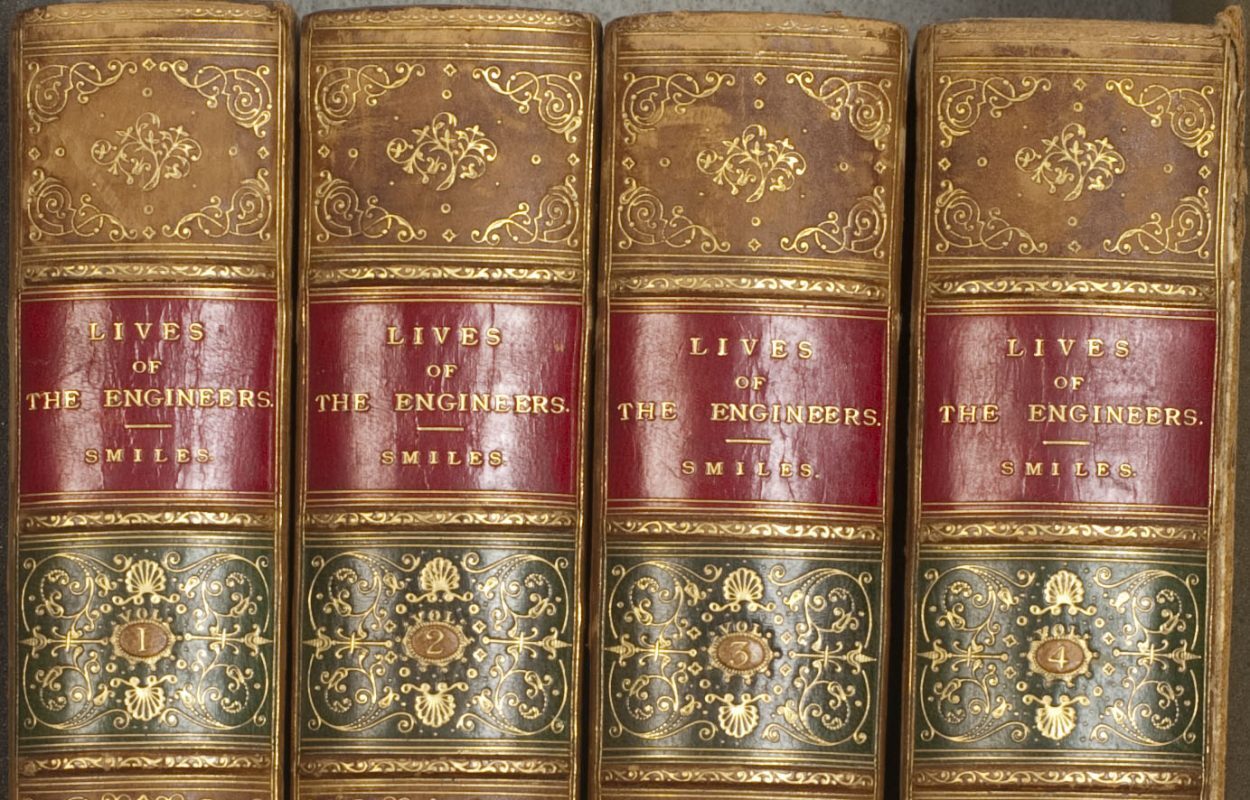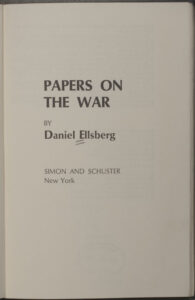Daniel Ellsberg began working for the RAND Corporation as a decisionmaking/policy consultant in 1959. In the mid-1960s he moved to the U.S. Defense Department and the Department of State, and spent two years in Vietnam observing the war. In 1967 he returned to RAND and began working on a study, sponsored by Secretary of Defense Robert McNamara, on the escalation of the war and U.S. decisionmaking in Vietnam from 1945 to 1968. The report, later to be known as the “Pentagon Papers,” revealed that Congress and the American public had been misinformed repeatedly about the actual progress of the war.
Alarmed and disillusioned by what he had read, Ellsberg secretly photocopied the 7,000-plus pages of the report. In 1969 he shared it with the Senate Foreign Relations Committee, but no public disclosure of the contents of the report was made. In 1971, Ellsberg, by then a lecturer in MIT’s Center for International Studies program, shared copies of the report with The New York Times and several other newspapers. The decision by The New York Times to publish it created a firestorm: many were outraged by the contents of the report, while others questioned whether the press should be publishing state secrets. Whatever else it accomplished, the release of the “Pentagon Papers” galvanized the anti-war movement.
For his actions, Ellsberg was brought to trial on felony charges. He also became a target of the Nixon Administration, which began illegally acquiring private information about him. In 1973 the case against Ellsberg was dismissed on grounds of government misconduct, leading to the conviction of several White House aides. The affair also contributed to the chain of events that would eventually lead to the resignation of President Richard Nixon.
 While awaiting trial, Ellsberg documented his account of the events in Papers on the War, published in 1972. As he wrote in the book’s introduction, “In releasing the Pentagon Papers I acted in hope I still hold: that truths that changed me could help Americans free themselves and other victims from our longest war.” The Vietnam War continued for several more years.
While awaiting trial, Ellsberg documented his account of the events in Papers on the War, published in 1972. As he wrote in the book’s introduction, “In releasing the Pentagon Papers I acted in hope I still hold: that truths that changed me could help Americans free themselves and other victims from our longest war.” The Vietnam War continued for several more years.
With the U.S. now engaged in a prolonged war in Afghanistan, the WikiLeaks case – in which U.S. Marine Bradley Manning leaked thousands of diplomatic cables and other intelligence to the WikiLeaks blog – evokes obvious parallels. Ellsberg himself, in an interview with CNN in early 2011, noted the similarities, saying “I was that young man; I was Bradley Manning.”
A related work, the multivolume Pentagon Papers: The Defense Department History of United States Decisionmaking in Vietnam, edited by Senator Mike Gravel, includes critical essays by Noam Chomsky and Howard Zinn and is also available in the MIT Libraries.

